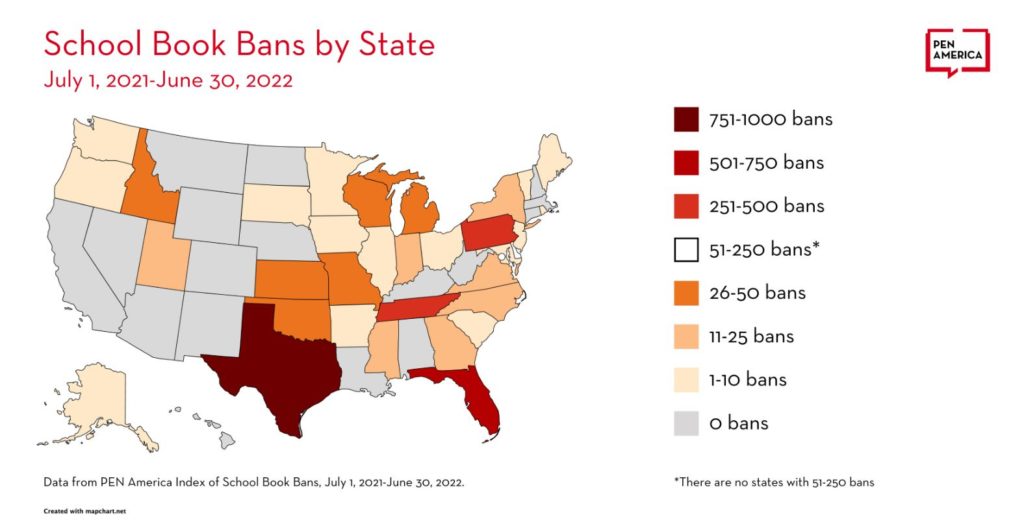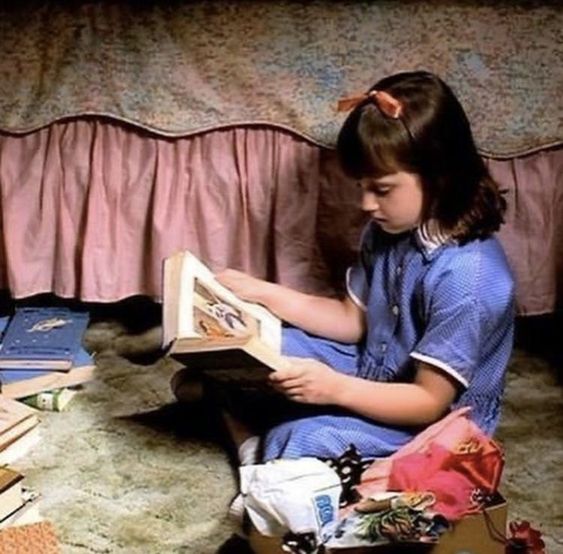Particularly since 2021, a quiet trend has been sweeping across the globe – the banning of literary works that were once considered pillars of literature and culture. The Guardian reports “Since Pen America started tracking public school book bans in July 2021, [it] has recorded more than 4,000 instances of banned books … this includes 1,477 individual book bans affecting 874 unique titles during the first half of the 2022-23 school year.” Book bans are more common in Republican-run states. This wave of censorship, while fueled by a range of motives, has begun to impact the education system and raise concerns about the well-rounded development of young minds.
Throughout history, literature has been a mirror to society’s evolution, reflecting its values, norms, and ideologies. Classics that have endured for generations provide not only a window into the past, but also opportunities for critical thinking, empathy, and understanding of diverse perspectives. However, the recent surge in literary bans, driven by political, religious, or ideological agendas, threatens to narrow the intellectual horizons of the next generation.
One of the most disconcerting aspects of this trend is the effect it has on education systems worldwide. The removal of certain literary works from curricula robs students of the chance to engage with complex themes and characters, limiting their exposure to diverse viewpoints. Literature, by its very nature, challenges readers to grapple with ambiguity, moral dilemmas, and cultural nuances – all of which are crucial skills for fostering critical thinking and fostering a deeper understanding of the world.
Furthermore, banning books often stems from an assumption that certain themes or ideas are inappropriate for young minds. However, this approach ignores the fact that literature can be a safe space for exploring uncomfortable topics. Reading about characters navigating challenging situations can help children and adolescents develop resilience and emotional intelligence, equipping them to handle real-life difficulties in a more mature manner.

The impact of literary bans reaches beyond just the classroom. In a world where information is easily accessible, attempting to shield children from certain ideas might prove counterproductive. Instead of fostering ignorance, educators and parents should focus on nurturing conversations around sensitive topics, guiding children towards critical analysis and empathy. Literature provides a structured way to initiate these discussions, ensuring that children are prepared to face the complexities of an ever-changing society.
While it is essential to acknowledge that some literary works may contain content that requires careful consideration, blanket bans fail to acknowledge the potential for growth that these works offer. Rather than simply removing challenging material, educators and parents should seize the opportunity to engage with children on themes such as racism, injustice, and inequality. This, in turn, can lead to a more enlightened and compassionate generation.
The power of literature lies in its ability to spark imagination and inspire new perspectives. By limiting access to certain books, we risk stifling the creativity and curiosity that propel human progress. The recent literary bans send a message that certain narratives and voices are deemed unworthy, thereby hindering the natural evolution of thought and expression.
The global trend of literary bans has profound implications for education and the development of young minds. While it is essential to approach the selection of literature thoughtfully, removing books that challenge or discomfort only serves to undermine the educational process. Instead of shielding children from the world, educators and parents must guide them through it, using literature as a tool for dialogue, critical thinking, and personal growth. Only by embracing diverse viewpoints and fostering an environment of open discourse can we hope to raise a generation that is well-equipped to navigate the complexities of the world they inherit.

